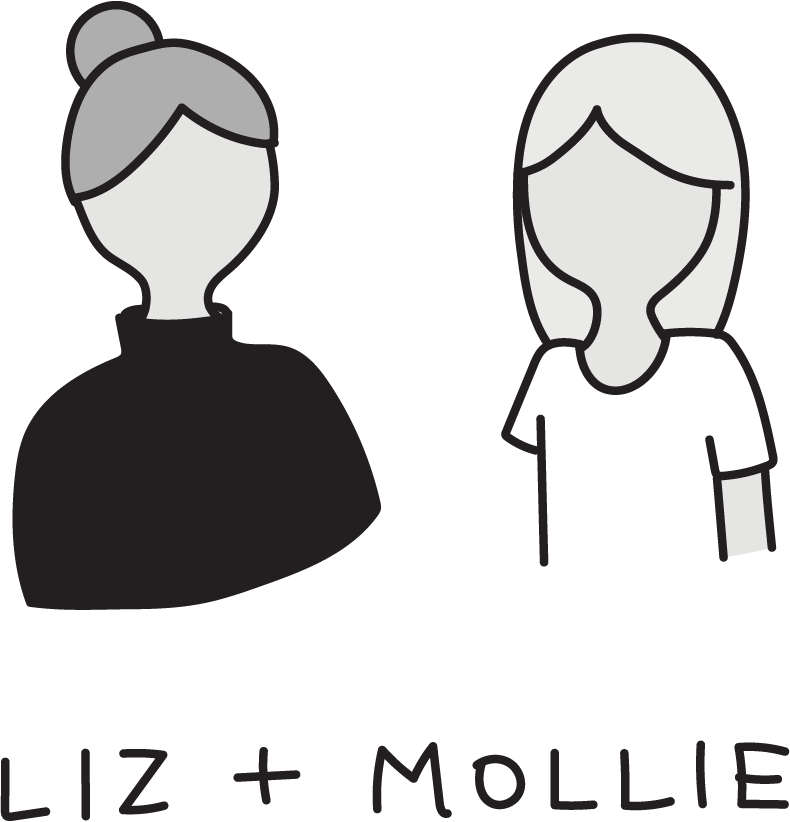Inspired by Chris Yeh’s blog post, “Lessons on Writing a Book,” we decided to write about the differences between how we each approach first drafts. When we begin a new chapter, one of us writes an outline, then we switch and the other writes the first draft, and we continue switching for the subsequent rounds of edits.
We each have very different approaches to writing the first draft of a chapter. Here are Mollie’s routines and tips for what makes her most effective
Mollie: My overall tendency towards writing is to #justdoit. I find flow in writing, so it’s something I look forward to. That being said, the moment of starting a new chapter is always overwhelming. I approach it like ripping off a bandaid-- I tell myself that if I can just get the first few paragraphs written, I’ll get the satisfaction of being immersed in the page.
1) Devote several months before starting the draft in research mode
Before writing a chapter draft, I like to spend months building a research document in google docs. Liz and I started our research document when we first began our book proposal and it’s now 50 pages long, with sub-sections for every chapter. For each chapter, I try to skim through at least 5-10 books on the subject (I check out library books on my Kindle and highlight sections and quotes, which I can then download directly to the research doc through the Kindle website). I subscribe to several academic journals, as well as HBR, FastCo, Quartz. Everytime I see a related article, I dump it in the research doc. I also get a lot of material from podcasts and people’s personal blogs and newsletters. I’ll continue to do research when I’m writing the chapter, but it’s infinitely easier to start a draft when you already have a few pages of research to start with.
2) Spend time on the outline-- but not too much time
When I’m ready to start a chapter, I copy over all the material from the research doc into a new document. I make a rough outline of how to organize the chapter. When I feel like I’ve gotten everything from the research doc slotted in, I move on to writing. I know that the outline will change at least two or three times during the writing and editing process, so there’s no sense in fussing with it too much before I start. I often have major questions about whether certain parts of the outline will work-- but I know that the only way to answer those questions is to write the chapter.
3) Write early in the morning, before the critical voice in your brain turns on
When I’m writing a first draft, I get up around 6 or 6:30 to write. I need to give myself at least an hour of uninterrupted time. When I’m editing, I can do it in chunks of 15 or 30 minutes, but for writing, I need longer chunks of time-- otherwise by the time I’ve gotten into the flow, it’s time to do something else. Writing in the morning is also important, because I’m still slightly in a daze from sleep, and I edit myself less.
4) Write alone or in transit
I get my best writing done when I’m alone in my apartment (or if my husband is home, in our bedroom with the door closed. I can’t write when someone I know is looking at me. ybe that is a weird introvert thing?). I’ve created a little writing nook for myself with a screen divider, a comfy chair, and a bookcase. I am also incredibly productive writing on a train or airplane. The wifi is usually non-existent or slow, so I’m less likely to get distracted, and there is nothing to do except keep my butt in a seat and write. Writing on long journeys keeps me from getting bored.
5) Edit for word choice as you go along
There are people who write first and edit later, and people who edit as they go along. I tend to edit as I go along-- but I only edit with the lens of clarity. I’ll rephrase certain words or rewrite sections of sentences. But I don’t allow myself to think, “Do I even need this sentence?” Otherwise I’d end up deleting everything! As soon as I’ve re-read a section once or twice, I move on to the next section.
6) Let your co-author (or editor) question everything
One thing that I’m not good at is editing in a big picture way. For example, if I’m writing a section in a chapter, it’s hard for me to ask the question, “Do we even need this section?” I feel like I owe it to myself (and to Liz) to stick to the plan and finish writing it (even if it makes no sense to keep writing it-- I have a compulsion to finish it). I think this is because of my upholder tendencies (read more about Gretchen Rubin’s four tendencies here). As an upholder, I like to meet inner and outer expectations. Liz is a questioner, which means she questions all expectations; she’ll meet an expectation if she thinks it makes sense. She helps pull me out from the weeds and reassess the book at large. While it’s sometimes painful to have her ask, “Do we even need this entire chapter?” I know that her perspective makes the book better. If you don’t have a co-author, ask an editor to play this role.
